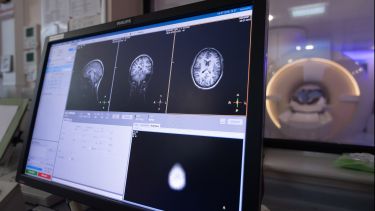Cognitive and neural processes across the lifespan
The cluster focuses on understanding the mechanisms via which the brain guides behaviour.

The cluster focuses on understanding the mechanisms via which the brain guides behaviour. This includes perception, decision making, skill learning and action control. Through computational modelling, preclinical imaging, and human studies, we aim to understand the physiological consequences of neural activity associated with both typical development and with neurological and neurodevelopmental conditions, including epilepsy, dementia, Parkinson’s disease, Autism and ADHD. We also investigate the neural basis of certain clinical conditions such as Alcohol Use Disorder.
We seek to understand individual differences in cognitive ability and plasticity, including how cognition is influenced by experiences such as stress, culture, neurodiversity and rare genetic conditions; and developing mathematical and computational models of adaptive self-organising networks to better understand the impact of natural selection on brain development.
We seek to build mechanistic models of developmental change in cognition and have particular expertise in the development of language, executive functioning, attention and memory.
We are passionate about Open Science practices and value robust, transparent, reproducible research.
Research Cluster Lead: Dr Claudia von Bastian
Deputy Research Cluster Leads: Dr Jason Berwick; Dr Clare Howarth
Meet the team
- Dr Jason Berwick
- Dr Emma Blakey
- Dr Sabrina Burr
- Dr Dan Carroll
- Dr Alicia Forsberg
- Prof Megan Freeth
- Dr Clare Howarth
- Dr Myles Jones
- Dr Vanessa Loaiza
- Dr Alekhya Mandali
- Dr Chris Martin
- Prof Elizabeth Milne
- Prof Paul Overton
- Dr Daniel Poole
- Prof Richard Rowe
- Dr Hannes Saal
- Prof Sue Sherman
- Prof Tom Stafford
- Dr Hazem Toutounji
- Dr Nemanja Vaci
- Dr Claudia Von Bastian
- Dr Alon Zivony
- Prof Danielle Matthews
- Dr Ruth Corps
Related lab groups
- Sheffield Neurovascular Lab
- Sheffield Cognitive Development Group
- Language Development Group
- Data and Decisions Lab
- Active Touch Lab
- Cognitive Ability and Plasticity Lab
- Sheffield Autism Research Lab
